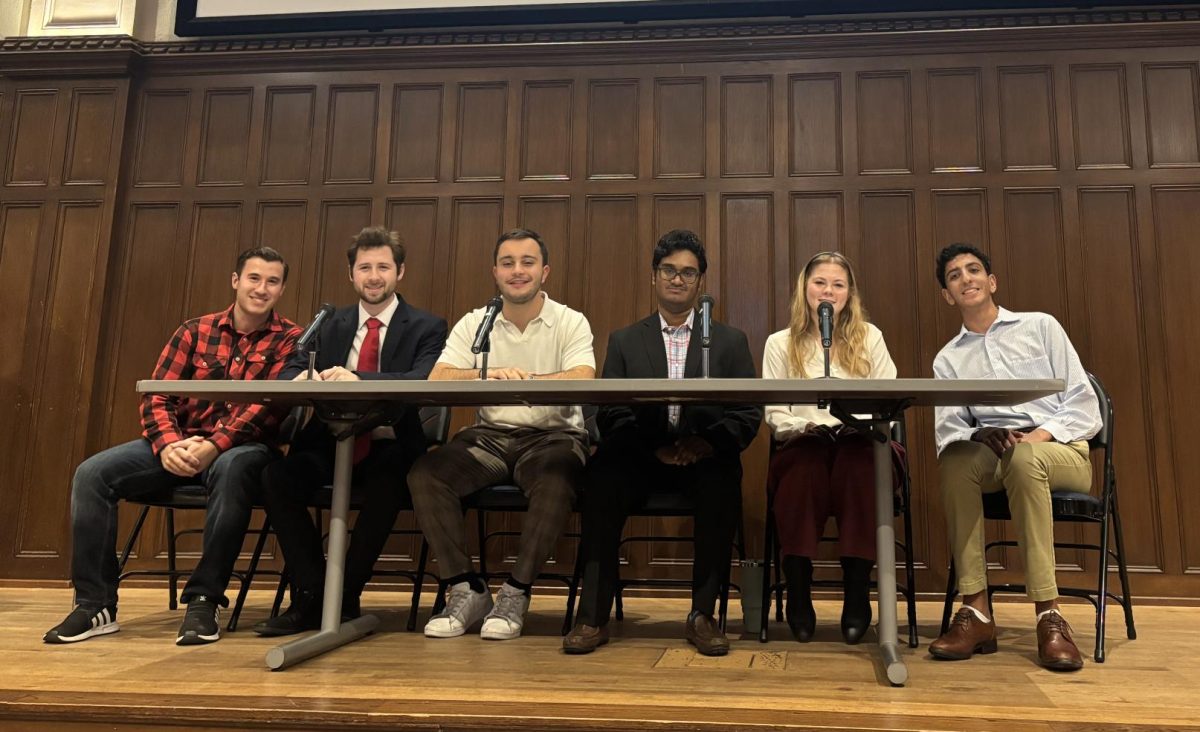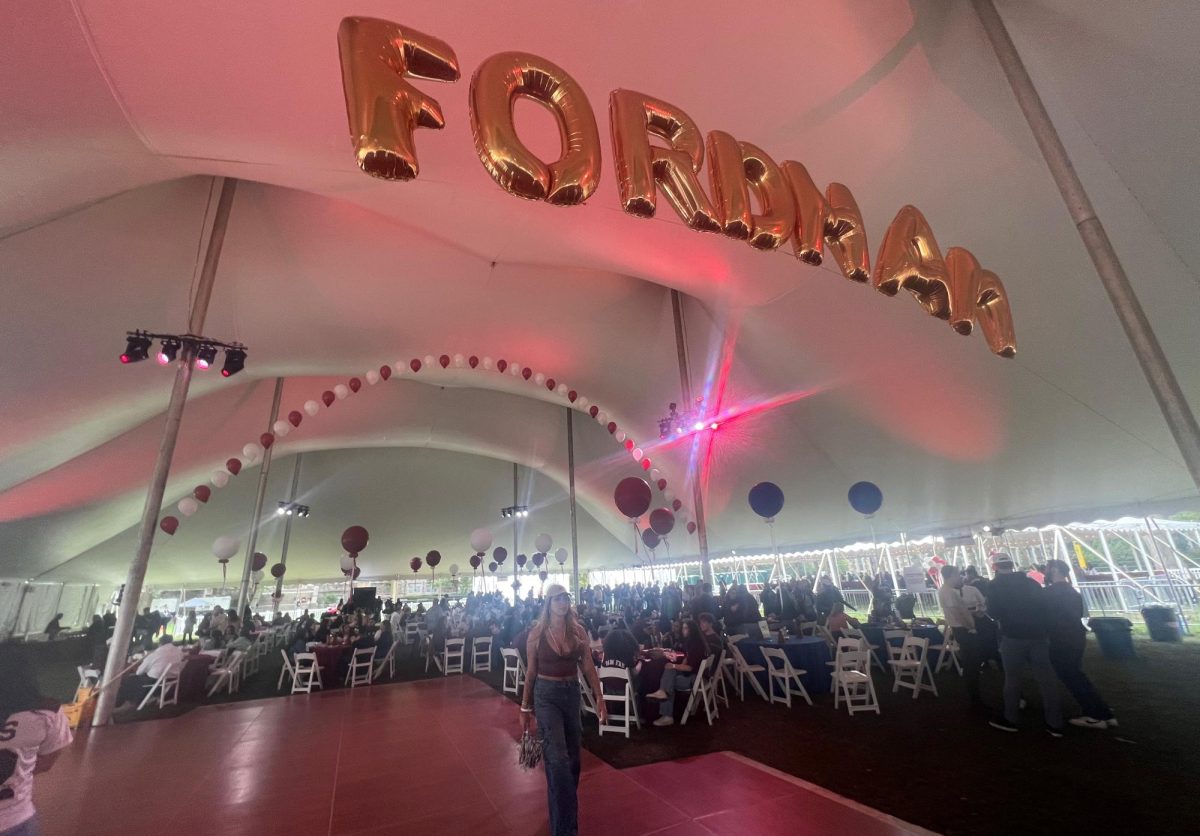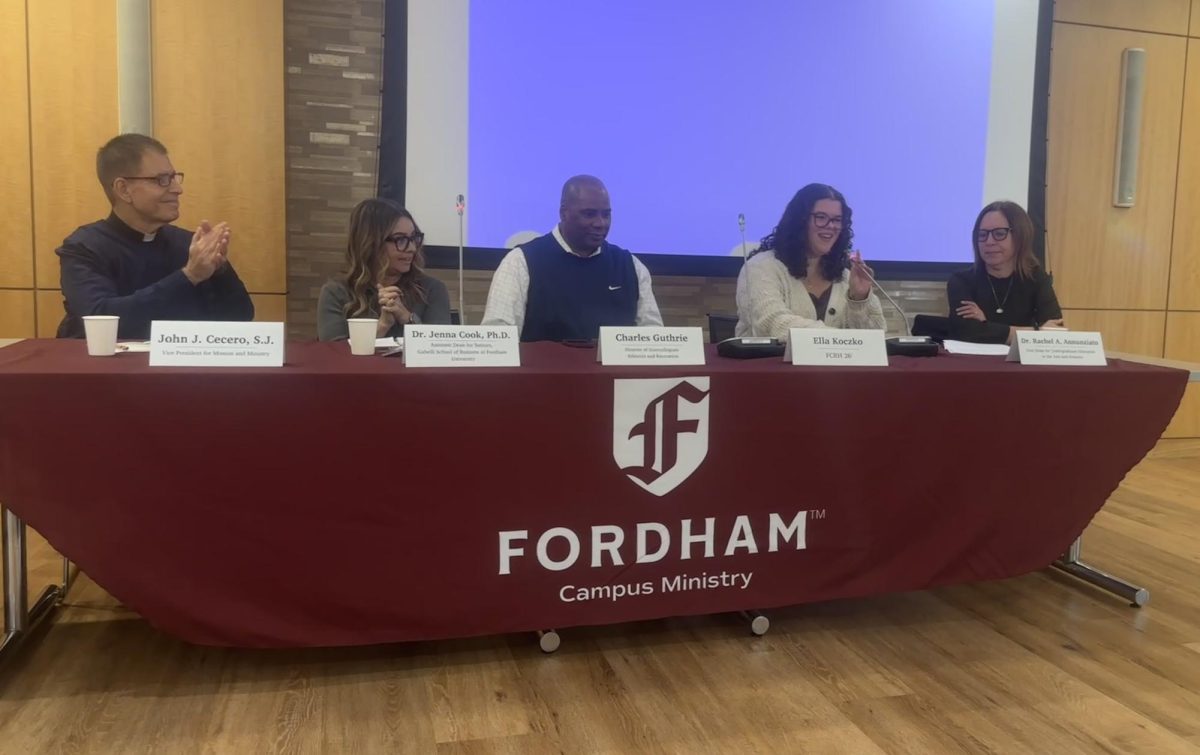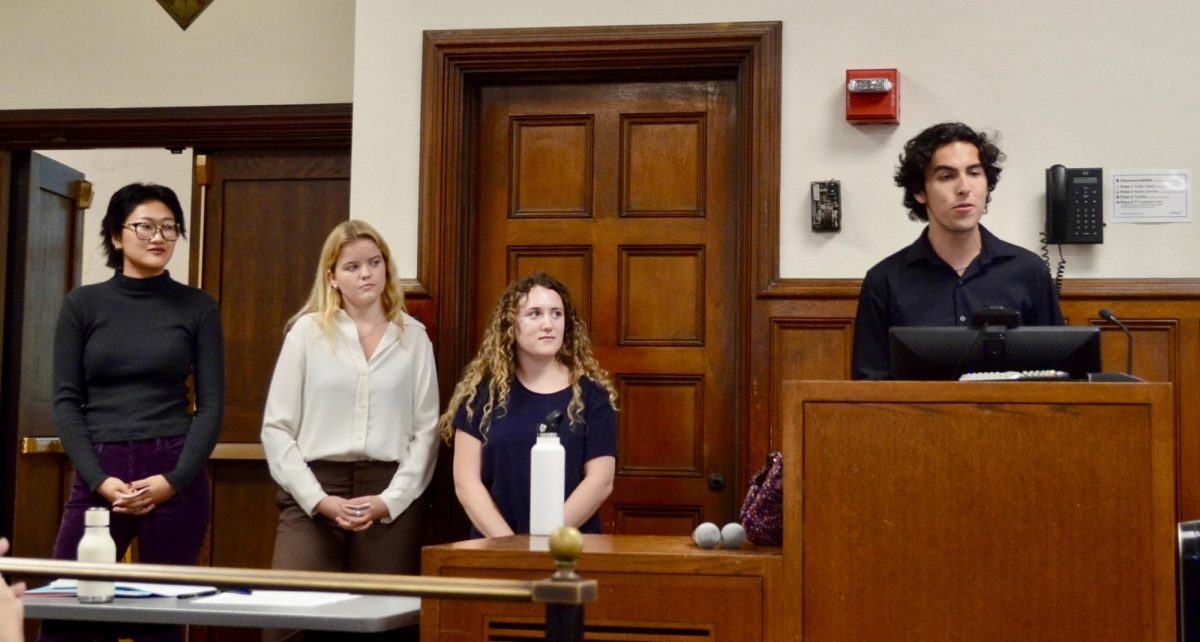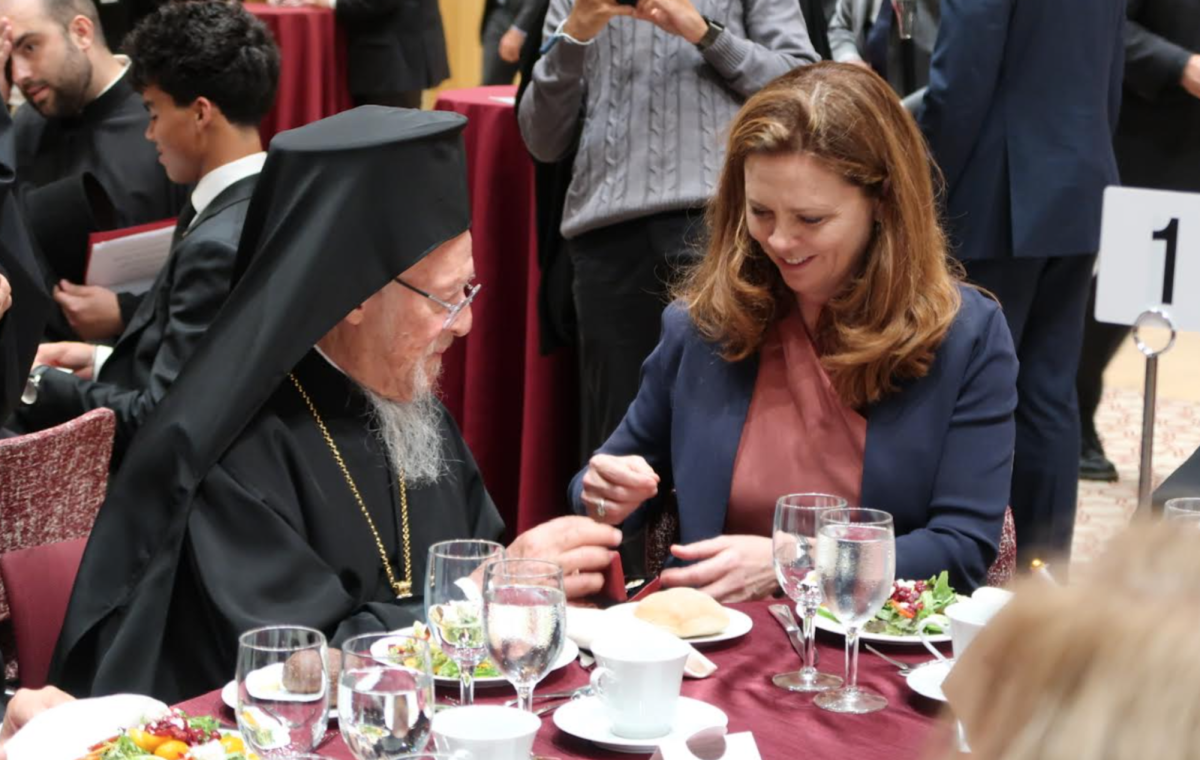The Fordham University College Democrats and the College Republicans met in Keating Hall on Oct. 20 to participate in a political debate hosted and moderated by the Fordham Political Union. The debate covered topics ranging from energy policy, free speech and immigration, to government accountability, policy and the 2025 New York City mayoral election.
Representing the College Democrats were Javeer Khan, FCRH ’28, Cameron Garland, FCRH ’29 and also Andrew Korolos, FCRH ’29.
Lorenzo Camillio, FCRH ’26, president of the College Republicans, as well as Jayson McArdle, GSB ’29, and Dakota Calcaterra, FCRH ’26, had represented Fordham’s College Republicans. Moderating the debate was Fordham Political Union President Luke Irvine, FCRH ’26, and Anna Gehres, FCRH ’26.
The event featured pre-written questions by the Political Union for both groups to answer, which were then supplemented with questions submitted by the Fordham community via a Google Form, followed by a live audience Q&A.
Despite the differing political ideologies between the two groups, audience members expressed that they felt the debate was largely civil and diplomatic.
“I really appreciated when both sides took some time to say ‘I agree with this or I agree with that,’ and I think that should happen more,” said attendee Margo Mihalick, FCRH ’26. “We’re not two sides that hate each other. We have so much in common.”
According to Irvine, this year’s debate was structured differently from previous years. In September, the Political Union met with leaders from both clubs to reorganize the format of the debate in hopes of giving each group more “on-the-spot responsibility.” Camillio explained the change in the debate structure.
“We changed up what was going to happen in terms of the debate. We only got topics, we didn’t get specific questions,” Camillio said.
The debate began with opening statements from each group, starting with the College Democrats. Khan conducted the College Democrats’ opening statement, highlighting the Democratic Party’s commitment to government accountability and protecting the rights of individual people.
Calcaterra also delivered the College Republicans’ opening statement, highlighting the Republican Party’s conservative ideologies and their desire to defend a popular government. He also explained the desire for Fordham to have “more diverse viewpoints.”
After opening statements, moderators from the Political Union then had posed a series of questions to each group. Both sides were given two minutes to respond, along with a 30-second rebuttal for the person to whom the question was addressed.
On the topic of free speech and protesting, Korolos had shared that protests are “an essential part of an American democracy,” and that they “allow for individuals’ ideas to be shared.” Korolos also highlighted that the damage violent protests can carry, citing Jan. 6 as an example, saying he does “not want to see protests like that as the norm in America.”
McArdle brought up the May 2024 protests at college campuses throughout New York City, arguing that “there is a responsibility on both sides of the issue.”
When it came to discussing the issues of immigration and law enforcement, Garland emphasized a need for better government accountability and transparency.
“We believe that [law enforcement] should be held to a higher standard of accountability so incidents like George Floyd don’t take place,” Garland said. “In terms of ICE [U.S. Immigrations and Customs Enforcement], nobody should be taken away from their family.”
McArdle then responded to Garland’s statement.
“We don’t disagree that there should be transparency and responsibility for our law enforcement,” McArdle said. “But we do need effective law enforcement.”
Garland had added that “immigration isn’t putting us back, it’s moving us forward, and what we want is to be the best country. Immigration helps us do that.”
When it came time for the audience to ask questions, many members asked each group about the upcoming New York City mayoral election. While each side’s responses had underscored their ideological differences, participants highlighted their shared values towards their commitment to the city’s safety and future. Calcaterra highlighted that both groups are concerned with “what is best for the people.”
Gonzalo Duran, who is a conservative and Bronx-based New York Public Advocate candidate, commended each group for their civility and asked each group how they felt about collaborating with one another, despite their evident ideological differences.
Camillio responded, saying that he believes it is possible for both political parties to collaborate, citing the debate between the 2024 vice president candidates.
“The debate that the vice presidents had last year … I think it was very special … We listened to each other’s opinions, with each other. It’s a compromise,” Camillio said.
Garland replied to Camillio, affirming his response.
“I actually think we pretty much completely agree with that answer,” she said. “I think the true meaning of democracy is that we are all part of a fairly unique belief … I think collaborating is how this country runs and how it works.”
In their closing remarks, both sides offered mutual respect for one another. Garland ended with an acknowledgment of the Indigenous people of America.
“I would just like to bring that back to remind us all that we are on Native land,” Garland said. “We came here, and we did not respect them, we did not respect their values, and we demolished their culture and who they were.”
Calcaterra recognized each group’s ability to remain civil during the debate.
“The fact that we have agreed on quite a lot of things,” Calcaterra said, “shows that our partisanship is real, our partisanship is possible.”



































































































































































































